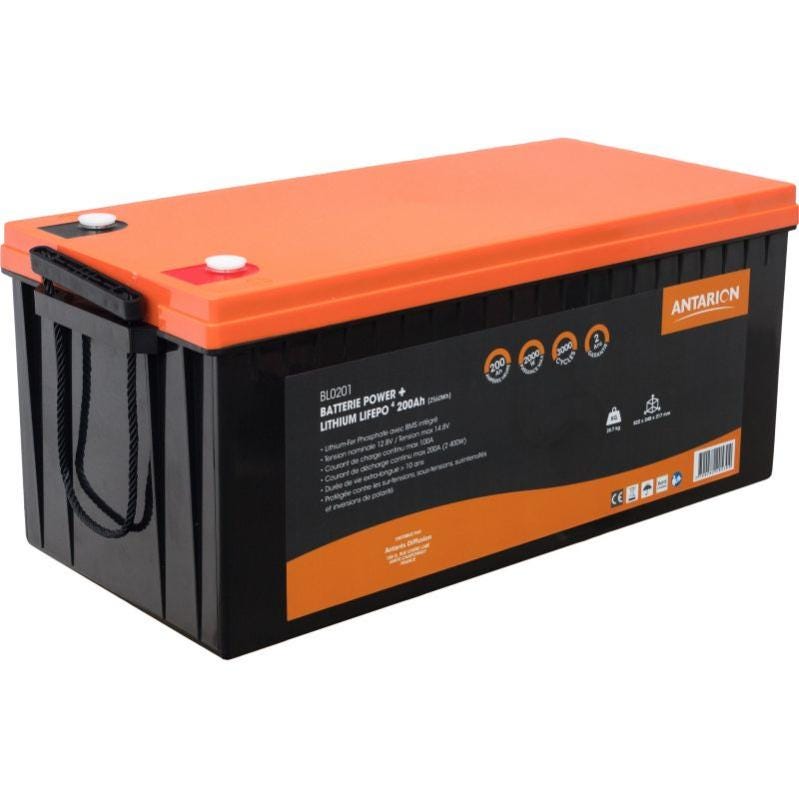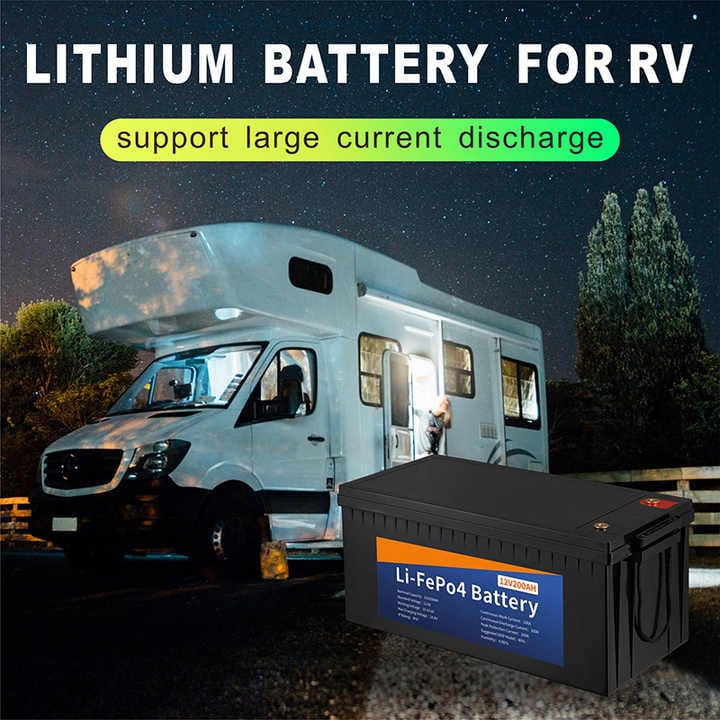Lithium-ion batteries have become increasingly important in our modern world. They power a wide range of everyday devices, from smartphones to laptops, making our daily tasks more convenient and efficient. Not only do they offer high energy density and long life cycles, but they are also essential in advancing renewable energy solutions and electric vehicles. This makes them a key player in our journey towards a more sustainable and eco-friendly future. Understanding the significance of these batteries helps us appreciate the technology that keeps our devices running and supports our move towards greener energy alternatives.
What is the lithium ion battery?
A lithium-ion battery is a type of rechargeable battery commonly used in many electronic devices. Inside, lithium ions move from the negative electrode to the positive electrode when discharging and back when charging. They are popular because they’re lightweight, have a high energy density, and can recharge many times without losing much capacity. This makes them perfect for smartphones, laptops, and even electric cars. Unlike older types of batteries, they don’t suffer from the memory effect, meaning you can recharge them before they’re fully discharged without harming their lifespan. Their efficiency and longevity make them a preferred choice in today’s tech world.

What are lithium ion battery used for?
Lithium-ion batteries have revolutionized the way we use and store energy, thanks to their unique properties. They find applications in a wide range of devices and systems, making our daily lives more efficient and convenient.
Consumer Electronics
They are the powerhouses behind most of our portable devices. Smartphones, laptops, digital cameras, and tablets all rely on these batteries for their long-lasting power and ability to be recharged hundreds of times.
Electric Vehicles (EVs)
Lithium-ion batteries play a crucial role in the automotive industry, especially in electric vehicles. They power EVs, providing a cleaner alternative to fossil-fuel-powered cars. Their high energy density allows for longer driving ranges, making EVs more practical and appealing.
Renewable Energy Systems
These batteries are key in solar and wind energy systems. They store excess energy generated during sunny or windy conditions, ensuring a steady power supply even when the sun isn’t shining or the wind isn’t blowing.
Power Tools
Gone are the days of corded tools limiting mobility. Lithium-ion batteries now power a variety of cordless tools, from drills to saws, offering more flexibility and efficiency in construction and DIY projects.
Medical Devices
They are vital in the healthcare sector, powering various medical devices like portable monitors, hearing aids, and even advanced equipment like defibrillators. Their reliability and long life make them ideal for critical medical applications.
Uninterruptible Power Supplies (UPS)
In data centers and critical computing environments, these batteries provide backup power. They ensure that in the event of a power outage, there is no interruption in operations, safeguarding data and hardware.
Aerospace and Defense
In the demanding environments of aerospace and defense, lithium-ion batteries power various equipment, from satellites to military vehicles. Their high energy-to-weight ratio makes them ideal for applications where weight is a critical factor.
Portable Chargers
We often use these batteries in portable power banks, allowing us to recharge our devices on the go. This has become particularly important in our always-connected world.
Recreational Vehicles (RVs) and Boats
They provide a reliable power source for RVs and boats, powering appliances and electronics without the need for constant recharging or fuel.
Emergency Systems and Lighting
In emergency lighting systems, lithium-ion batteries ensure that lights stay on during power failures, providing safety in public spaces and workplaces.
Why lithium ion battery is best?
Lithium-ion batteries stand out as the best option for many applications, owing to their exceptional benefits. Let’s see the main reasons why they are so widely preferred.
High Energy Density
High energy density is one of lithium-ion batterie’s most important benefits. This means they can store more energy in a smaller space, making them ideal for portable electronics like smartphones and laptops, where space is at a premium.
Long Life Cycle
These batteries have a longer life cycle compared to other types. They can handle hundreds of charge-discharge cycles without significant capacity loss. This durability makes them cost-effective over time, as they don’t need frequent replacements.
Low Self-Discharge Rate
Lithium-ion batteries have a low rate of self-discharge in comparison to other rechargeable batteries. This means they retain their charge for longer when not in use, ensuring your device is ready to go when you need it.
Fast Charging
Lithium-ion batteries charge much faster than traditional batteries. This feature is particularly beneficial in our fast-paced world, where waiting for hours for a device to charge is not practical.
Lightweight and Compact
Their lightweight nature is a huge advantage, especially in portable devices and electric vehicles. It allows for more efficient and compact designs, making devices easier to handle and use.
No Memory Effect
Memory effect in batteries refers to the loss of capacity when they are not fully discharged before recharging. Lithium-ion batteries do not suffer from this, allowing for partial charges without any long-term capacity loss.
Wide Range of Shapes and Sizes
They can be produced in various shapes and sizes, offering flexibility in design. This adaptability allows manufacturers to tailor batteries to the specific needs of different devices.
Environmentally Friendlier
While no battery is entirely environmentally friendly, lithium-ion batteries are a better option compared to some alternatives. They contain fewer toxic metals and can be recycled, reducing their environmental impact.
High Discharge Rate
They can deliver a high discharge rate, providing large amounts of power when needed. This feature is particularly important in applications like power tools and electric vehicles.
Thermal Stability and Safety
Modern lithium-ion batteries are designed to be thermally stable and safe. With proper use and handling, they pose a minimal risk of overheating or causing fires, which is crucial for consumer safety.
Enhanced Efficiency
They offer better overall efficiency, converting more of the electrical energy into usable power. This efficiency reduces energy wastage and improves the performance of the device they power.
Better for Renewable Energy Integration
In renewable energy systems, like solar or wind, lithium-ion batteries effectively store and manage the intermittent energy produced, enhancing the viability of these green energy sources.
Supports Rapid Technological Advancement
Their versatility and efficiency have enabled rapid advancements in technology, particularly in mobile computing and electric vehicles, driving innovation in these sectors.
Where to buy lithium ion batteries?
If you’re looking to buy lithium-ion batteries, a great place to start is ttnergy.com. They offer a wide range of lithium-ion batteries suitable for various applications. Whether you need a battery for your electronic devices, electric vehicles, or renewable energy projects, ttnergy.com has options for you. Their website is user-friendly, making it easy to find exactly what you need.

What to consider when buying lithium ion batteries?
When buying lithium-ion batteries, it’s important to consider several key factors to ensure you get the right one for your needs.
Capacity and Energy Requirements
First, think about the capacity you need. This is usually measured in milliampere-hours (mAh). Higher mAh means the battery can store more energy, providing longer usage between charges. Consider the energy demands of your device. For high-drain devices like cameras or electric vehicles, you’ll need a battery with a higher capacity to ensure optimal performance.
Size and Compatibility
Make sure the battery fits your device. Batteries come in various shapes and sizes, and using the wrong type can damage your device. Check the specifications of your device to know the exact size and type of battery it requires. Compatibility is key, not just in terms of size, but also voltage and connection type.
Brand and Quality
Opt for reputable brands known for quality and reliability. A good quality lithium-ion battery not only lasts longer but also ensures safety. Cheap, off-brand batteries might save money upfront but can pose risks like overheating or reduced lifespan. Reading reviews and researching brands can help you make an informed decision.
When purchasing lithium-ion batteries, consider their capacity, size, compatibility with your device, and the reputation of the brand.
